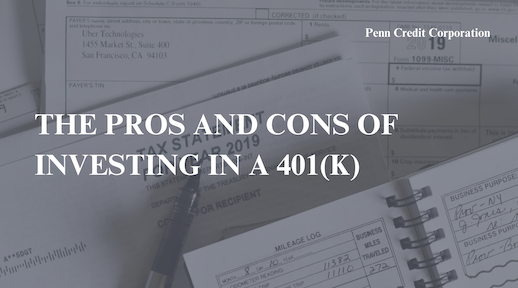Investing in a 401(k) is a great way to build financial security for retirement. A 401(k) offers a variety of benefits, such as tax savings, employer-matching contributions, and flexibility. However, there are also potential drawbacks to consider. Understanding the pros and cons of a 401(k) can help you make an informed decision about whether or not to participate in one. This article will explore some of the advantages and disadvantages of investing in a 401(k), so you can create a sound retirement plan and secure your financial future.
Pros of investing in a 401(k)
Having federal legal protection
Investing in a 401(k) plan at work offers many benefits, including federal legal protection under the Employee Retirement Income Security Act of 1974 (ERISA). This law sets minimum standards for employers that offer retirement plans and their administrators and also protect the plans from creditors. Additionally, plan holders have the option to take their vested retirement funds with them when they change jobs.
Getting matching funds
If you are eligible for a 401(k) retirement plan at work, you should always take advantage of the employer’s matching contributions. For instance, if you were to make an annual income of $50,000 and contribute 3% or $1,500, then your employer would match that same amount, leaving you with a total of $3,000. This means you would receive a 100% return on your $1,500 investment, making it an incredibly worthwhile endeavor. Therefore, it is essential to set your 401(k) contributions to the maximum amount possible to take full advantage of the employer’s match.
Having a high annual contribution limit
One of the key benefits of investing in a 401(k) retirement plan at work is the high annual contribution limit. To ensure a happy and secure retirement, consider increasing your contribution percentage each year by at least 1%, with the ultimate goal of saving at least 10-15% of your gross income. Many retirement plans include an automatic increase in contribution percentage that takes effect at the start of each year, making it easier to reach your goal.
Getting free investing advice
Most companies offering workplace retirement plans are major brokerages, such as Fidelity or Vanguard, and provide free investing advice. If you are enrolled in one of these plans, you can benefit from their free assessments and advisors to help you make the best investment decisions for your age, financial situation, and risk tolerance. Typically, if you have a long time until retirement or greater risk tolerance, you should put more money into stock funds. On the other hand, if you have less time or a lower risk tolerance, you should go with more conservative investments, such as money market funds or bonds.
Cons of investing in a 401(k)
You may have limited investment options
One of the disadvantages of investing in a 401(K) retirement plan at work is that you may have limited investment options. When compared to an IRA, or other types of retirement accounts, your 401(k) may have less diversity in terms of the investment options that are available. This means that you won’t be able to find exotic choices, just basic asset classes such as stock, bond, and cash funds. While having a limited investment menu streamlines your investment choices, it does limit the complexity of your investments.
You may have higher account fees
When investing in a 401(K) retirement plan at work, the fees you pay may be higher than other options due to the administrative responsibilities of the employer. To minimize your fees, choose low-cost index funds or exchange-traded funds (ETFs) that are available to you. Unfortunately, you may have little control over the fees you must pay.
You must pay fees on early withdrawals
If you plan to invest money in a 401(k) retirement plan at work, bear in mind that early withdrawals are subject to a penalty fee, typically around 10%. You are also not allowed to access the funds unless you can prove a qualifying hardship. This could discourage you from contributing to your account, as the money won’t be available for immediate use. To avoid any potential financial losses, it’s best to only use money for a 401(k) plan that you don’t need for everyday expenses. Despite this disadvantage, the long-term benefits of investing in a 401(k) greatly outweigh the downsides.
